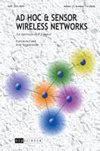基于分散聚合的差分隐私联邦学习
IF 0.6
4区 计算机科学
Q4 COMPUTER SCIENCE, INFORMATION SYSTEMS
引用次数: 1
摘要
如今,移动设备和网络的无处不在的使用引起了人们对个人数据失去控制的担忧,以及在结合交换通信、大数据库和分布式和协作(P2P)机器学习技术的场景中,对隐私和效用之间权衡的研究进展。另一方面,尽管联邦学习(FL)通过将数据保留在本地节点(执行本地训练以丰富全局模型)来提供一定程度的隐私,但这种场景仍然容易受到成员推理攻击等隐私泄露的影响。为了提供更强的隐私水平,本研究使用基准数据集部署了具有差分隐私(DP)的FL实验环境。通过一个分类实例,得到的结果表明,参数和技术的选择是上述隐私与效用权衡的核心。本文章由计算机程序翻译,如有差异,请以英文原文为准。
Using Decentralized Aggregation for Federated Learning with Differential Privacy
Nowadays, the ubiquitous usage of mobile devices and networks have raised concerns about the loss of control over personal data and research advance towards the trade-off between privacy and utility in scenarios that combine exchange communications, big databases and distributed and collaborative (P2P) Machine Learning techniques. On the other hand, although Federated Learning (FL) provides some level of privacy by retaining the data at the local node, which executes a local training to enrich a global model, this scenario is still susceptible to privacy breaches as membership inference attacks. To provide a stronger level of privacy, this research deploys an experimental environment for FL with Differential Privacy (DP) using benchmark datasets. The obtained results show that the election of parameters and techniques of DP is central in the aforementioned trade-off between privacy and utility by means of a classification example.
求助全文
通过发布文献求助,成功后即可免费获取论文全文。
去求助
来源期刊

Ad Hoc & Sensor Wireless Networks
工程技术-电信学
CiteScore
2.00
自引率
44.40%
发文量
0
审稿时长
8 months
期刊介绍:
Ad Hoc & Sensor Wireless Networks seeks to provide an opportunity for researchers from computer science, engineering and mathematical backgrounds to disseminate and exchange knowledge in the rapidly emerging field of ad hoc and sensor wireless networks. It will comprehensively cover physical, data-link, network and transport layers, as well as application, security, simulation and power management issues in sensor, local area, satellite, vehicular, personal, and mobile ad hoc networks.
 求助内容:
求助内容: 应助结果提醒方式:
应助结果提醒方式:


